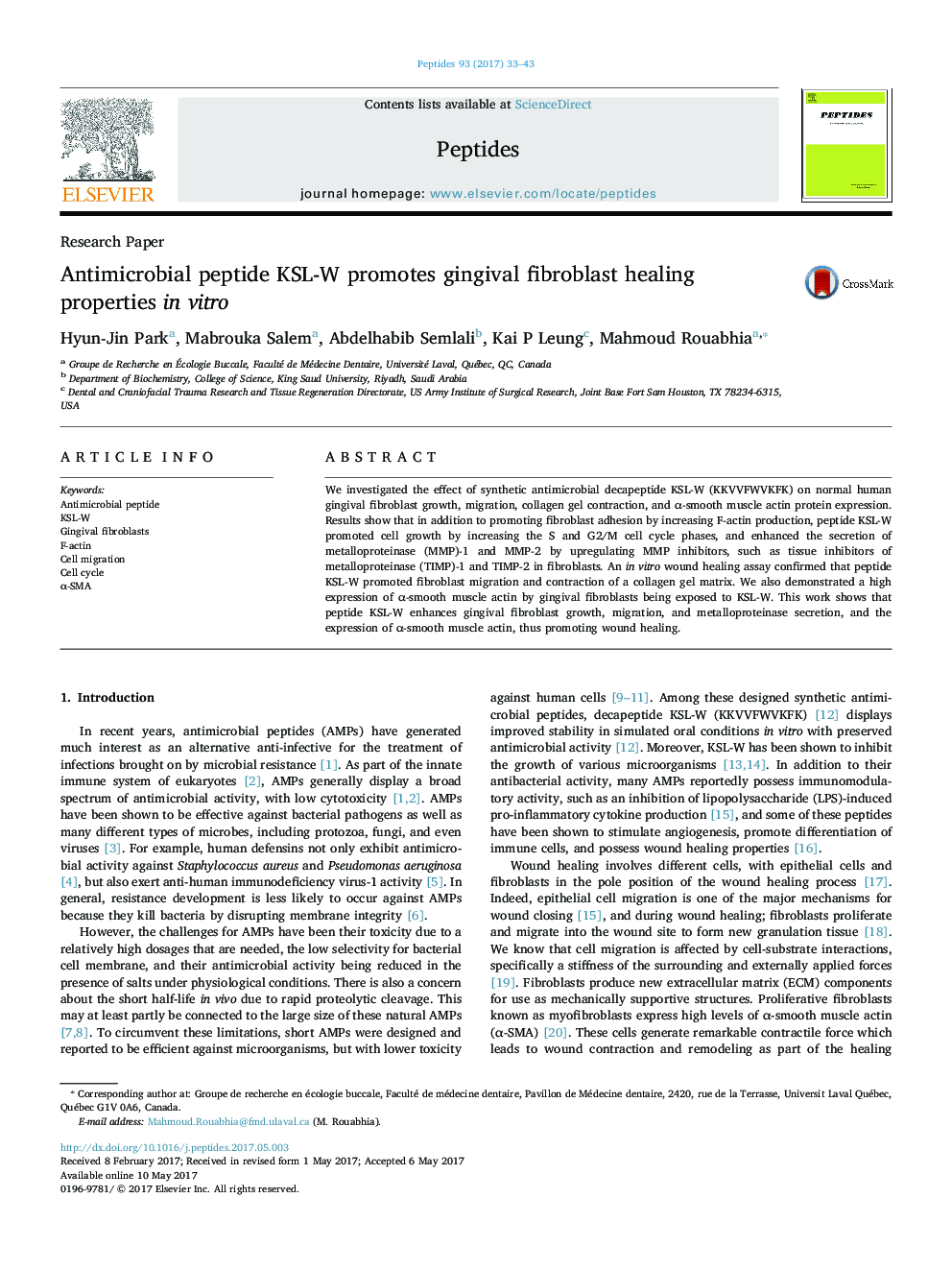| کد مقاله | کد نشریه | سال انتشار | مقاله انگلیسی | نسخه تمام متن |
|---|---|---|---|---|
| 5514640 | 1541686 | 2017 | 11 صفحه PDF | دانلود رایگان |

- A synthetic antimicrobial decapeptide KSL-W (KKVVFWVKFK) promoted gingival fibroblast attachment, growth, and migration after scratch.
- The peptide KSL-W increased the expression of α-smooth muscle actin by fibroblasts.
- The peptide KSL-W enhanced collagen gel contraction.
- The peptide KSL-W may promote wound healing.
We investigated the effect of synthetic antimicrobial decapeptide KSL-W (KKVVFWVKFK) on normal human gingival fibroblast growth, migration, collagen gel contraction, and α-smooth muscle actin protein expression. Results show that in addition to promoting fibroblast adhesion by increasing F-actin production, peptide KSL-W promoted cell growth by increasing the S and G2/M cell cycle phases, and enhanced the secretion of metalloproteinase (MMP)-1 and MMP-2 by upregulating MMP inhibitors, such as tissue inhibitors of metalloproteinase (TIMP)-1 and TIMP-2 in fibroblasts. An in vitro wound healing assay confirmed that peptide KSL-W promoted fibroblast migration and contraction of a collagen gel matrix. We also demonstrated a high expression of α-smooth muscle actin by gingival fibroblasts being exposed to KSL-W. This work shows that peptide KSL-W enhances gingival fibroblast growth, migration, and metalloproteinase secretion, and the expression of α-smooth muscle actin, thus promoting wound healing.
Journal: Peptides - Volume 93, July 2017, Pages 33-43